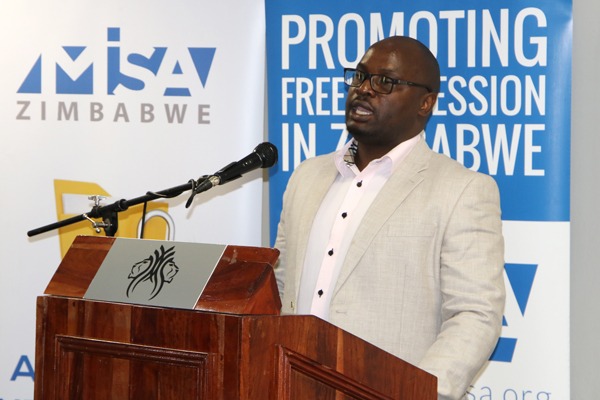
BY FARAI MATIASHE
MEDIA Institute of Southern Africa-Zimbabwe Chapter director Thabani Moyo has called on internet governance stakeholders to move their focus from geographical to continental approaches when fighting the clampdown of online platforms by the State and its apparatus.
In January this year, during protests over a 150% fuel price increase, the government responded by shutting down the internet to restrict access to information.
Addressing a regional multi-stakeholder workshop in Harare yesterday, Moyo said there was need for stakeholders to strengthen their voices in fighting internet freedom rights violations as a collective rather than in isolation.
“Sadc has set out parameters through its cyber security model laws and the African Union model laws on data protection, among others, which our respective member States are utilising or adopting to strengthen their stranglehold on the internet. Therefore, the countries of southern Africa are speaking to and advising each other on how to shrink online space,” he said.
“This requires that our focus as stakeholders moves from geographical centric interventions by taking a bird’s eye view towards regional or continental approaches of galvanising voices that stand in solidarity when attacks of online platforms are emerging. That movement needs to be strengthened because when democracy is on retreat that is the only solidarity that is the first line of defence.”
Moyo said there had been a shift by African governments from shutting down of the internet to use of high costs to minimise the number of people who access the internet on the continent.
“Going forward, we believe that the three As are critical. The issue of availability of the platforms, we need to be galvanised to be a defence line against wanton shutdown or threatening of the internet, issues of affordability. From the reports that are emerging, it shows that there is a strategic shift from wanton shut downs to high costs to inhibit usage of online platforms,” he said.
- Chamisa under fire over US$120K donation
- Mavhunga puts DeMbare into Chibuku quarterfinals
- Pension funds bet on Cabora Bassa oilfields
- Councils defy govt fire tender directive
Keep Reading
Moyo said to ensure that people remained online, there was need for multi-stakeholders including those from the academia, government, civil society groups, regulators and the media to come up with effective strategies that recognise the significance of the internet to democracy in the country.
According to the Postal and Telecommunications Regulatory Authority of Zimbabwe, there has been a decline in the use of the internet in the country. In December 2018, there was 62,9% of the country’s population that had access to the internet and that had dropped to 57,2% by June this year.







